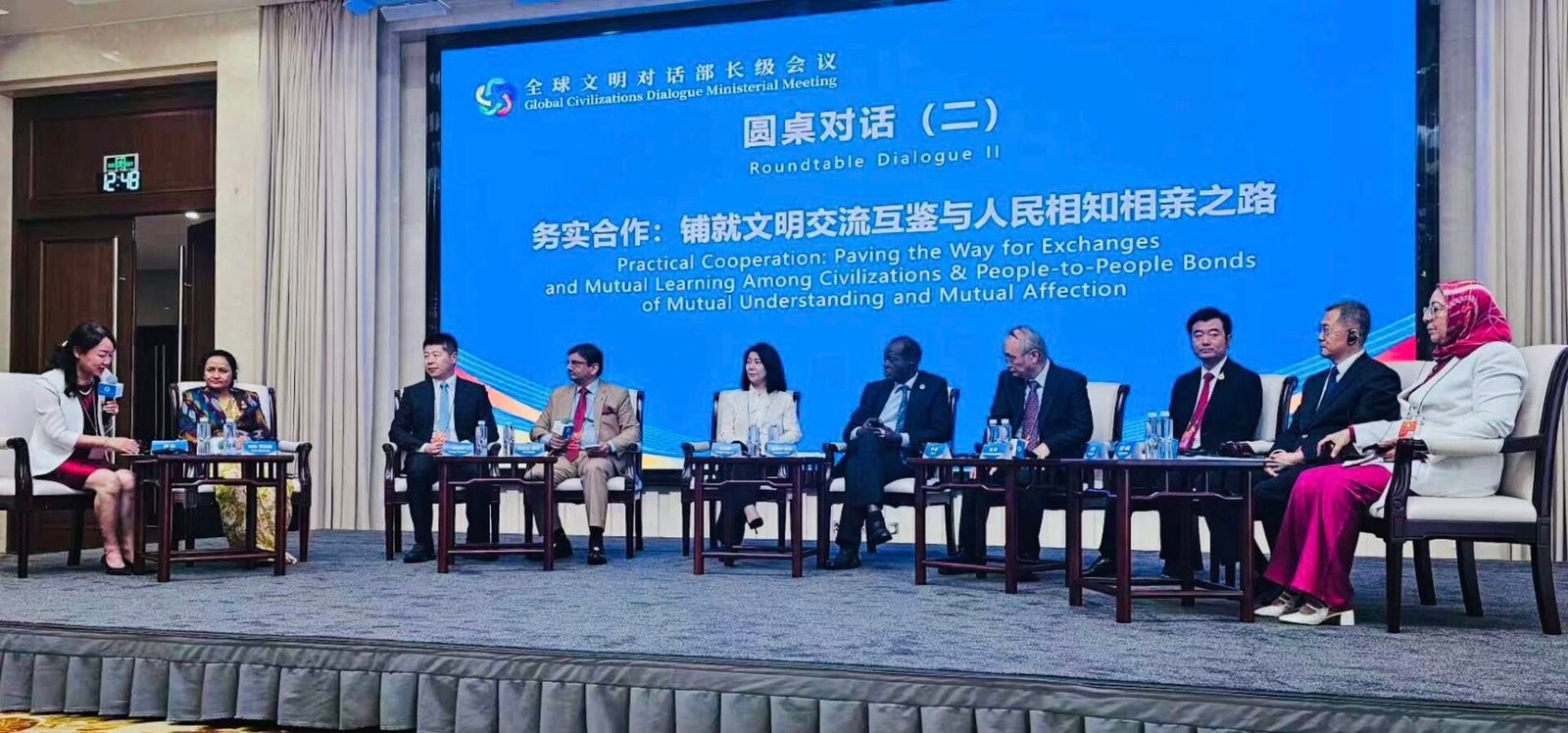Beijing (TDI): The Executive Director of the Institute of Peace and Diplomatic Studies (IPDS), Pakistan, delivered a compelling address at the Global Civilizations Dialogue Ministerial Meeting held in Beijing, calling for a visionary approach to civilizational diplomacy rooted in mutual learning, cultural innovation, and youth empowerment.
Speaking during Roundtable Dialogue II, titled “Practical Cooperation: Paving the Way for Exchanges and Mutual Learning Among Civilizations & People-to-People Bonds of Mutual Understanding and Mutual Affection,” the Pakistani scholar joined distinguished panelists from around the world to reflect on pathways to strengthen cultural cooperation in the digital era.
Muhammad Asif Noor said, “We collectively reaffirm our commitment to the Global Civilization Initiative—to mutual respect, shared development, and building a global community rooted in peace and dignity,”
Representing Pakistan’s academic and diplomatic community, the Executive Director emphasized the rich legacy of China-Pakistan civilizational ties—spanning ancient trade routes, religious exchange, and intellectual tradition—and called for a systemic and forward-looking approach to build upon this heritage.
“We must move from ceremonial exchange to institutional cooperation,” he stated, presenting four concrete proposals for elevating civilizational engagement between China, Pakistan, and other SCO countries.
First, he proposed the establishment of joint academic platforms, such as long-term degree programs, bilingual curricula, and collaborative research centers—envisioning a future China-Pakistan Institute for Civilizational Dialogue that could explore shared histories, from Gandhara Buddhism to contemporary governance models.
Second, he urged both sides to empower youth as active agents of intercultural diplomacy. “Too often, youth exchanges are symbolic. We must invest in immersive, challenge-based innovation programs that allow students to co-create solutions across borders,” she remarked.
Third, he has called for digitization of shared cultural heritage through joint archives, student-produced journals, and cross-cultural media collaborations. “Let our youth be not just tourists of culture, but curators of memory,” he said, emphasizing the importance of narrative ownership in preserving collective heritage.
Finally, he spotlighted the crucial role of language learning in deepening mutual empathy. He stressed the urgency of expanding Mandarin-Urdu language exchange programs in both public and private institutions, cautioning that “without language, empathy stalls—and without empathy, civilizations risk hardening into stereotypes.”
The roundtable discussion drew the participation of high-level representatives from Asia, Africa, and Europe, all of whom shared experiences from their respective countries in advancing dialogue between cultures. The session underscored the broader themes of mutual trust, cultural pluralism, and digital cooperation featured throughout the ministerial meeting.
The speech by the IPDS Executive Director was widely appreciated by delegates for its clarity, depth, and emphasis on institutionalizing civilizational diplomacy in an age of geopolitical polarization and digital disruption. His remarks stood out for providing a practical roadmap rooted in both soft power strategy and the humanistic values shared across Asian societies.
The Global Civilizations Dialogue Ministerial Meeting forms part of China’s broader diplomatic initiative to promote civilizational understanding and people-to-people ties under the Global Civilization Initiative proposed by President Xi Jinping.
The Diplomatic Insight is a digital and print magazine focusing on diplomacy, defense, and development publishing since 2009.



